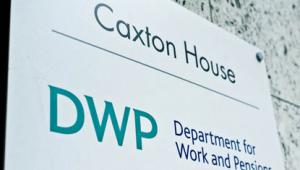By Richard Johnstone | 26 March 2013
Next week’s Housing Benefit cuts could have ‘a severe impact’ on the poorest people in the UK, the Public Accounts Committee warned today.
In a report examining the changes, the MPs said the changes were taking place in April without ministers knowing the likely outcome on recipients or on local authorities.
Among the reforms is a cap on total benefits being trialled in four London boroughs, ahead of a national roll-out from September. Total welfare payments will be capped at £500 per week for families with children and £350 for individuals, with Housing Benefit reduced if the limit is breached.
Also being introduced in April is the controversial ‘bedroom tax’, which affects council and housing association tenants living in homes deemed to be under-occupied. This will reduce Housing Benefit for each ‘spare room’.
These changes are intended to cut annual spending on housing support, which amounted to £23.4bn in 2011/12, by £6.2bn by 2014/15. Around 2 million of the total 5 million households that receive the benefit will have their payment reduced, according to the PAC report, Managing the impact of Housing Benefit reform.
Although Housing Benefit is paid by the Department for Work and Pensions, it is administered by councils. However, the committee found that central government had only a ‘limited understanding’ of the costs local authorities would incur, such as if people were made homeless as a result of the changes.
The DWP told the committee it was difficult to predict accurately how individuals would respond to the changes. The MPs said this meant the department would need to be able to react quickly if problems occurred
The committee also warned that making changes at the same time as other reforms, such as the introduction of Universal Credit and reductions in Council Tax Benefit, could compound the impact of the cuts
PAC chair Margaret Hodge said people who received Housing Benefit were by definition on low incomes, where even small reductions in entitlement could have a significant impact on their finances. The DWP therefore needed to decide in advance exactly what actions it would take in response to increases in homelessness or rents, she said.
It was also not clear whether the £390m Discretionary Housing Payments fund, which has been set up as part of the transition to the new arrangements, would be enough to help councils mitigate the impact of the changes. The total funding allocation was not based on any rational assessment of need, Hodge added.
‘The department expects its reforms to deliver savings of £6.2bn by 2014/15 but it has failed to take into account the administrative costs of implementing the changes and the potential knock-on costs to other services, for example if homelessness does rise.
‘These costs could be high for local authorities as they come at the same time as changes to council tax [support],’ she added.





















